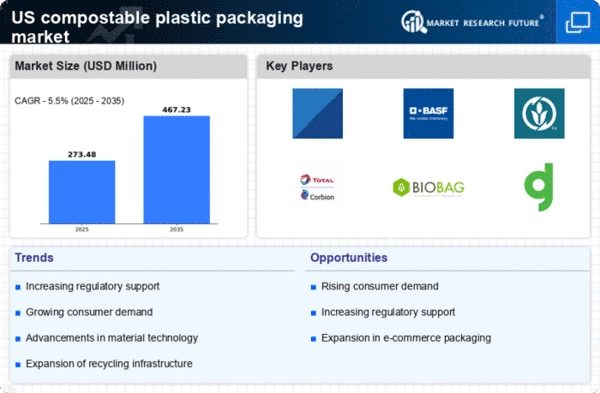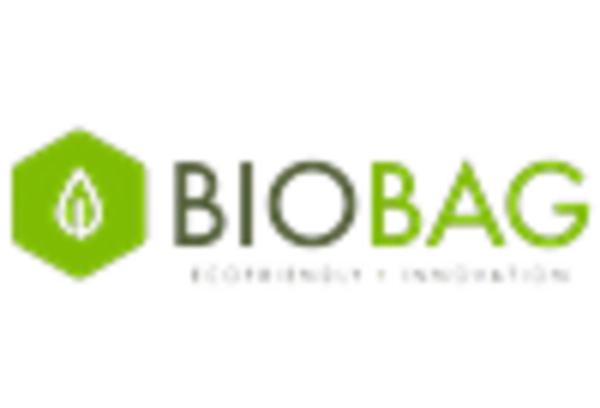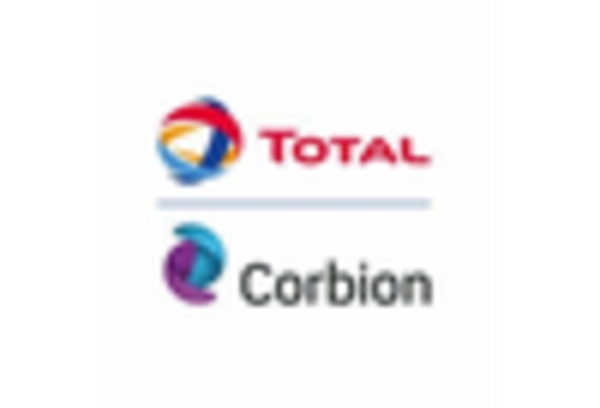Government Incentives and Support
Government policies and incentives play a crucial role in fostering the growth of the compostable plastic-packaging market. Various state and local governments in the US are implementing regulations that encourage the use of compostable materials, such as tax breaks and grants for companies that adopt sustainable practices. For example, some states have introduced legislation that mandates the use of compostable packaging in specific industries, further driving market demand. This regulatory support not only facilitates the transition to compostable materials but also enhances the overall market landscape, making it more attractive for businesses to invest in sustainable packaging solutions.
Increased Environmental Awareness
The compostable plastic-packaging market is experiencing a surge in demand driven by heightened environmental awareness among consumers. As individuals become more informed about the detrimental effects of traditional plastics on ecosystems, they are increasingly seeking sustainable alternatives. This shift in consumer behavior is reflected in market data, indicating that approximately 70% of consumers in the US express a preference for eco-friendly packaging solutions. Companies are responding to this demand by investing in compostable materials, which not only align with consumer values but also enhance brand loyalty. The growing emphasis on sustainability is likely to propel the compostable plastic-packaging market forward, as businesses strive to meet the expectations of environmentally conscious consumers.
Innovation in Compostable Materials
The compostable plastic-packaging market is benefiting from ongoing innovation in material science, leading to the development of new compostable polymers and blends. Research institutions and companies are collaborating to create materials that not only meet performance standards but also decompose efficiently in composting environments. Recent advancements have resulted in compostable plastics that can withstand various conditions, making them suitable for a wider range of applications. This innovation is crucial for expanding the market, as it addresses previous limitations associated with compostable materials, thereby enhancing their appeal to manufacturers and consumers alike.
Corporate Sustainability Initiatives
Many corporations are adopting sustainability initiatives that prioritize the use of compostable materials in their packaging strategies. This trend is particularly evident in the food and beverage sector, where companies are increasingly aware of their environmental impact. For instance, a report indicates that over 50% of major food brands in the US have committed to using compostable packaging by 2025. These initiatives not only help reduce waste but also improve corporate image and consumer trust. As more companies embrace these practices, the compostable plastic-packaging market is likely to expand, driven by the need for businesses to align with sustainability goals and consumer expectations.
Rising E-Commerce and Delivery Services
The rapid growth of e-commerce and delivery services is significantly impacting the compostable plastic-packaging market. As online shopping continues to rise, the demand for sustainable packaging solutions is becoming increasingly important. Many e-commerce companies are recognizing the need to reduce their environmental footprint and are opting for compostable packaging options. Market analysis suggests that the e-commerce sector is projected to grow by over 20% annually, which could lead to a substantial increase in the use of compostable materials. This trend indicates a promising future for the compostable plastic-packaging market, as businesses seek to align their packaging practices with consumer preferences for sustainability.
















